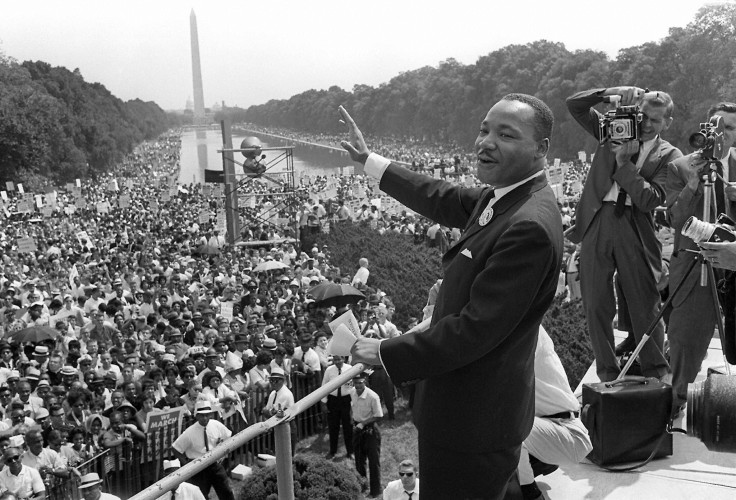Martin Luther King, Jr. Assassination Facts: 7 Things To Know About The Civil Rights Leader's Murder

Marin Luther King, Jr. was standing on the second-floor balcony of the Lorraine Motel as the sun began to set on downtown Memphis when he was shot dead 48 years ago on April 4. Although decades have passed since King’s murder, his legacy as one of the most influential figures in the civil rights movement lives on. Here are seven facts you may not know about his assassination:
1. King was born in Atlanta, Georgia, in 1929. He was in Memphis at the time of his assassination to support a sanitation workers’ strike.
2. The Baptist minister, who sought equality through nonviolent resistance, delivered a 43-minute speech at the mason Temple Church of God in Memphis the day before his assassination. It was the last speech he ever gave. Here’s a brief passage from that speech:
“Like anybody, I would like to live a long life. Longevity has its place. But I’m not concerned about that now. I just want to do God’s will. And He’s allowed me to go up to the mountain. And I’ve looked over. And I’ve seen the Promised Land. I may not get there with you. But I want you to know tonight, that we, as a people, will get to the Promised Land!”
3. King was standing outside room 306 at the Lorraine Motel, where he was staying, when was shot in the neck by a sniper’s bullet. The African-American civil rights leader was rushed to a local hospital and pronounced dead an hour later at the age of 39. He left behind his wife, Coretta Scott King, and four children.
4. Months later on June 8, police arrested James Earl Ray, the suspect in King’s assassination, at Heathrow Airport in London. Witnesses had spotted Ray, a small-time criminal, fleeing from a boarding house near the Lorraine Motel on the day of King’s death.
5. Ray pleaded guilty to King’s murder on March 10, 1969, and was sentenced to 99 years in prison. No testimony was heard in Ray’s trial.
6. Shortly after his conviction, Ray retracted his guilty confession, saying he was the victim of a conspiracy. Some members of King’s family, including his son Dexter, who met publicly with Ray in 1977, argued for a reopening of his case years later. Several U.S. government-led investigations confirmed Ray as the sole assassin, but controversy still surrounds the case.
7. Ray died in prison in 1998. King’s widow, Coretta Scott King, lamented at the time that “America will never have the benefit of Mr. Ray’s trial, which would have produced new revelations about the assassination…as well as establish the facts concerning Mr. Ray’s innocence.”
© Copyright IBTimes 2024. All rights reserved.











